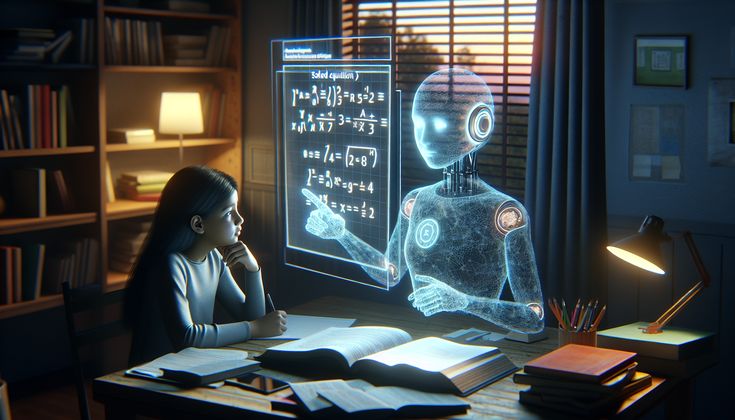
Inside the $40,000-a-Year School with No Teachers, Only AI
Oct 3, 2025 |
👀 767 views |
💬 0 comments
A radical new private school has opened its doors in Silicon Valley, and it has no teachers, no set curriculum, and no traditional classrooms. Instead, for a tuition of $40,000 a year, students at the "Synthesis School" are taught almost entirely by an artificial intelligence tutor, a model that is sparking both fascination and intense debate about the future of education.
Founded by a group of tech entrepreneurs and former educators, Synthesis is the most extreme implementation yet of personalized, AI-driven learning. The school is a bold experiment designed to answer a provocative question: can AI provide a better education than a human teacher?
A Day in the Life: Learning from the Algorithm
At Synthesis, each student is given a tablet and logs into the school's proprietary AI platform for the entire day. There are no lectures or grade levels in the traditional sense.
The AI curates a completely individualized learning path for every child. It presents them with a series of complex problems, simulations, and collaborative games designed to teach critical thinking, science, and mathematics. The AI constantly adapts the difficulty and subject matter based on the student's performance, ensuring they are always challenged but never overwhelmed.
Human adults, referred to as "guides" rather than "teachers," are present in the school's open-plan learning space. However, their role is not to instruct. Instead, they act as mentors and facilitators, helping students with interpersonal conflicts or providing encouragement, but they never directly answer academic questions. The AI is the primary educator.
The Philosophy: Personalized Mastery Over Standardized Testing
The founders of Synthesis argue that the traditional education system is a relic of the industrial age, designed to produce compliant factory workers. They believe their AI-driven model is superior for several reasons:
Personalized Pacing: Every student learns at their own optimal pace. Gifted students can soar ahead, while those who are struggling get instant, targeted support from the AI without the stigma of being left behind.
Focus on Problem-Solving: The curriculum is based on real-world problems and collaborative challenges, which they argue is more engaging and effective than rote memorization.
Data-Driven Insights: The AI platform provides a level of data on each student's learning process—identifying specific conceptual misunderstandings in real-time—that a human teacher managing 30 students simply cannot match.
A Controversial Future
The model has been met with a storm of criticism. Child development experts have raised serious concerns about the lack of sustained, instructional relationships with human teachers, which they argue are critical for a child's social and emotional growth.
Critics also point to the high cost, arguing that such a model, if it proves successful, will only widen the educational gap between the wealthy elite and the general public.
Despite the controversy, the school is fully enrolled, with a long waiting list of parents from the tech industry eager for their children to be part of what they see as the next frontier of education. Whether Synthesis is a glimpse into a brilliant, hyper-personalized future or a dystopian experiment in outsourced learning, the world of education is watching very closely.
🧠 Related Posts
💬 Leave a Comment
